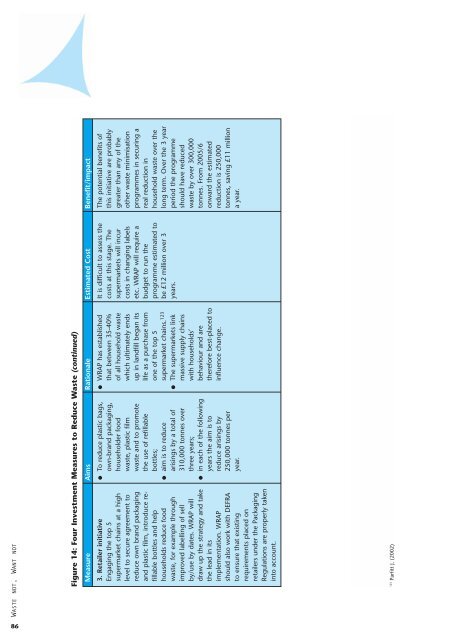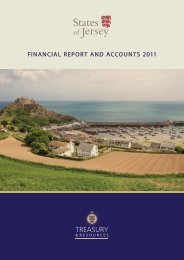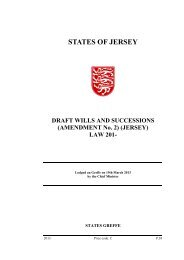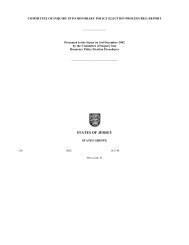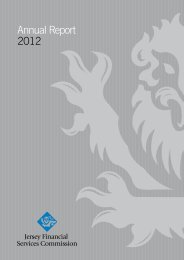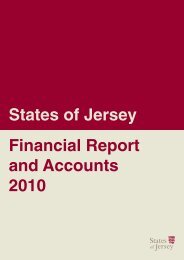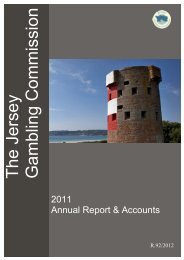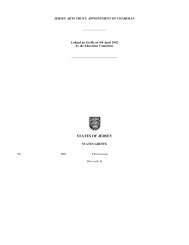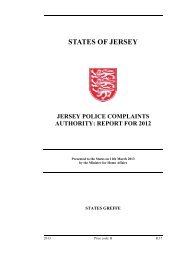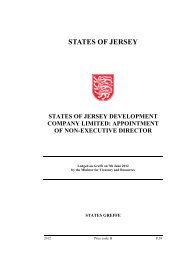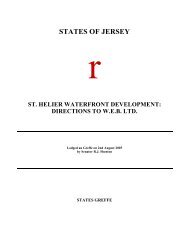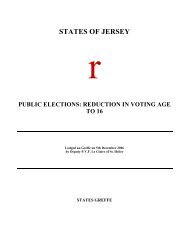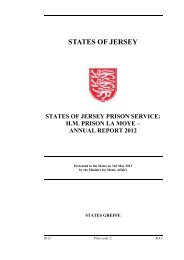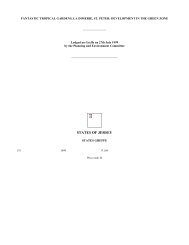Waste not want not - States Assembly
Waste not want not - States Assembly
Waste not want not - States Assembly
Create successful ePaper yourself
Turn your PDF publications into a flip-book with our unique Google optimized e-Paper software.
WASTE NOT, WANT NOT<br />
Figure 14: Four Investment Measures to Reduce <strong>Waste</strong> (continued)<br />
Measure Aims Rationale Estimated Cost Benefit/impact<br />
3. Retailer initiative<br />
Engaging the top 5<br />
supermarket chains at a high<br />
level to secure agreement to<br />
reduce own brand packaging<br />
and plastic film, introduce refillable<br />
bottles and help<br />
households reduce food<br />
waste, for example through<br />
improved labelling of sell<br />
by/use by dates. WRAP will<br />
draw up the strategy and take<br />
the lead in its<br />
implementation. WRAP<br />
should also work with DEFRA<br />
to ensure that existing<br />
requirements placed on<br />
retailers under the Packaging<br />
Regulations are properly taken<br />
into account.<br />
● To reduce plastic bags,<br />
own-brand packaging,<br />
householder food<br />
waste, plastic film<br />
waste and to promote<br />
the use of refillable<br />
bottles;<br />
● aim is to reduce<br />
arisings by a total of<br />
310,000 tonnes over<br />
three years;<br />
● in each of the following<br />
years the aim is to<br />
reduce arisings by<br />
250,000 tonnes per<br />
year.<br />
● WRAP has established<br />
that between 35-40%<br />
of all household waste<br />
which ultimately ends<br />
up in landfill began its<br />
life as a purchase from<br />
one of the top 5<br />
supermarket chains. 123<br />
● The supermarkets link<br />
massive supply chains<br />
with households’<br />
behaviour and are<br />
therefore best-placed to<br />
influence change.<br />
It is difficult to assess the<br />
costs at this stage. The<br />
supermarkets will incur<br />
costs in changing labels<br />
etc. WRAP will require a<br />
budget to run the<br />
programme estimated to<br />
be £12 million over 3<br />
years.<br />
The potential benefits of<br />
this initiative are probably<br />
greater than any of the<br />
other waste minimisation<br />
programmes in securing a<br />
real reduction in<br />
household waste over the<br />
long term. Over the 3 year<br />
period the programme<br />
should have reduced<br />
waste by over 300,000<br />
tonnes. From 2005/6<br />
onward the estimated<br />
reduction is 250,000<br />
tonnes, saving £11 million<br />
a year.<br />
123<br />
Parfitt J. (2002)<br />
86


